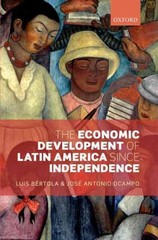Question
Question 1 True or False? Okun's law describes the relationship between inflation and output. True False 2. Question 2 The Phillips curve describes the relationship
Question 1
True or False? Okun's law describes the relationship between inflation and output.
True
False
2.
Question 2
The Phillips curve describes the relationship between inflation and unemployment. Which of the following statements is false?
The Phillips curve is not stable over time. Only short-run Phillips curves are useful.
The Phillips curve illustrates that central banks have to increase inflation to reduce unemployment.
The Phillips curve shifts with changes in inflation expectations.
All of the above are true.
3.
Question 3
The Taylor rule approximates the Federal Reserve monetary policy decisions over the past 60 years. Which of the following statements about the Taylor rule is true?
The Taylor rule implies that the Federal Reserve focuses on deviations in inflation and unemployment from long-run values.
The Taylor rule implies that the Federal Reserve only cares about inflation.
The Taylor rule implies the Federal Reserve gives equal weight to unemployment and inflation.
None of the above.
4.
Question 4
Which of the following statements about rule-based monetary policy is true?
Rule-based monetary policy is superior to discretionary monetary policy as it always achieves the central bank's inflation goal.
Rule-based monetary policy is optimal as central banks cannot address cyclical fluctuations.
Central banks would also prefer to deviate from monetary policy rules ex post.
None of the above.
5.
Question 5
Which of the following statements about Federal Reserve interest rate cuts is true?
Long-term interest rates remain unaffected.
Exports will increase.
Industrial production will pick up immediately.
All of the above.
6.
Question 6
Monetary policy affects short- and long-term interest rates. Which of the following statements about the about changes in the long-term interest rate is true?
Reduced long-term interest rates increase the consumption of durable goods.
Reduced long-term interest rates increase investment.
Reduced long-term interest rates are likely to increase stock prices.
All of the above.
7.
Question 7
The bank lending channel of monetary policy describes one channel through which monetary policy affects the economy. Which of the following statements about bank lending channel is false?
Interest rate increases reduce net interest income and therefore bank profits and credit supply.
Interest rate increases will force banks to hold more reserves at the Federal Reserve reducing the availability of credit.
Interest rate increases lead to an outflow of deposits, reducing the credit supply.
All of the above are true.
8.
Question 8
True or False? The refinancing channel of monetary policy states that lower interest rates will cause refinancing of mortgages at lower rates, reducing monthly payments. This extra money increases consumer spending.
True
False
9.
Question 9
Which statement about the limits of monetary policy is false?
Monetary policy cannot address structural changes in the economy.
Monetary policy cannot lower the natural rate of unemployment.
Monetary policy is ineffective when short-term interest rates are already at the zero lower bound.
All of the above are true.
10.
Question 10
True or False? Monetary policy can address inflation caused by supply shocks by sharply increasing interest rates.
True
False
Step by Step Solution
There are 3 Steps involved in it
Step: 1

Get Instant Access to Expert-Tailored Solutions
See step-by-step solutions with expert insights and AI powered tools for academic success
Step: 2

Step: 3

Ace Your Homework with AI
Get the answers you need in no time with our AI-driven, step-by-step assistance
Get Started


